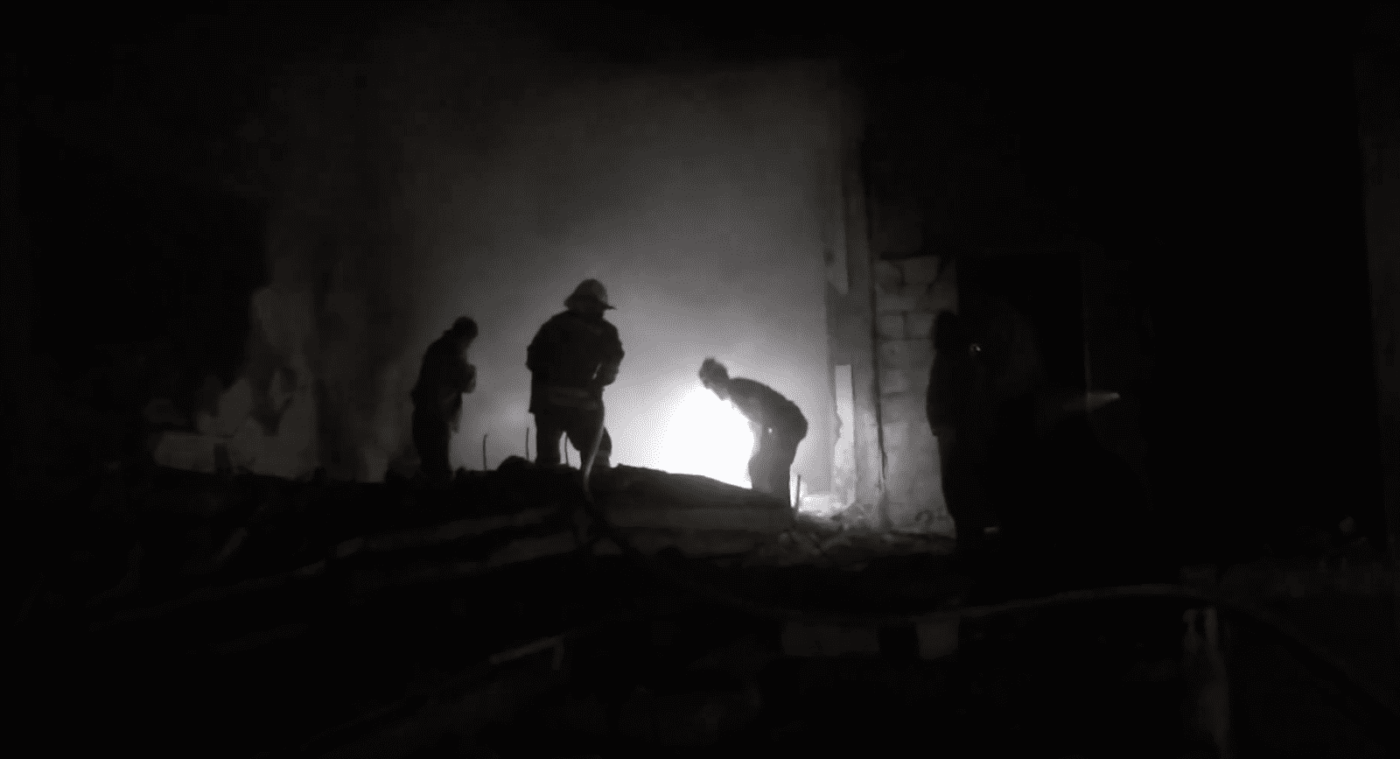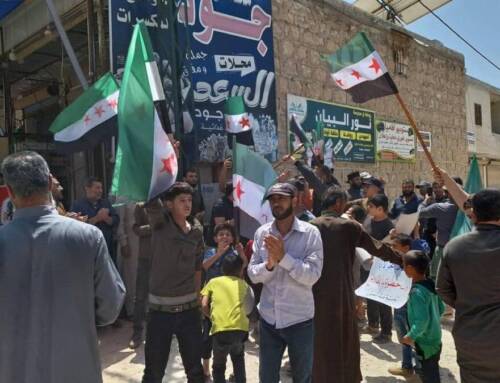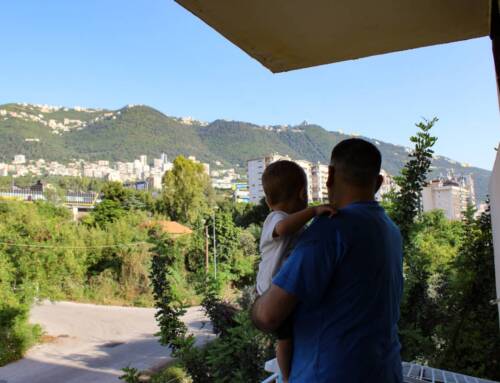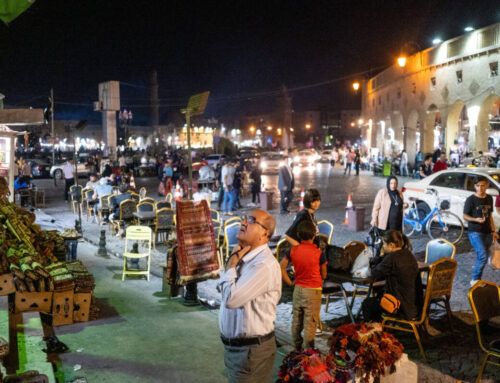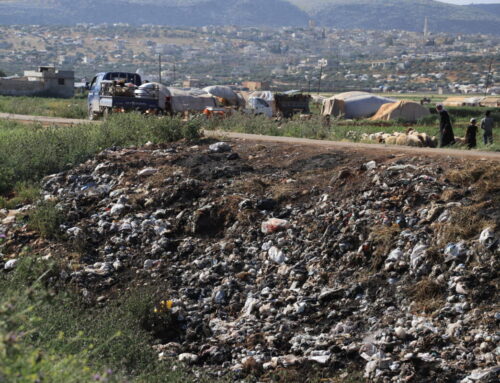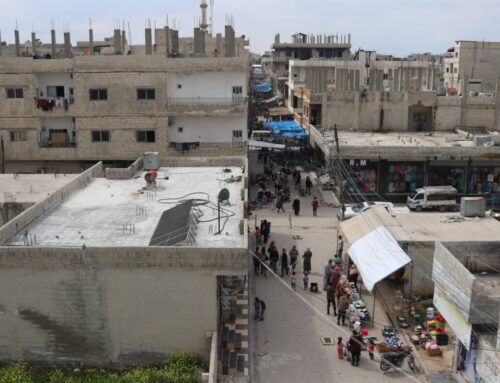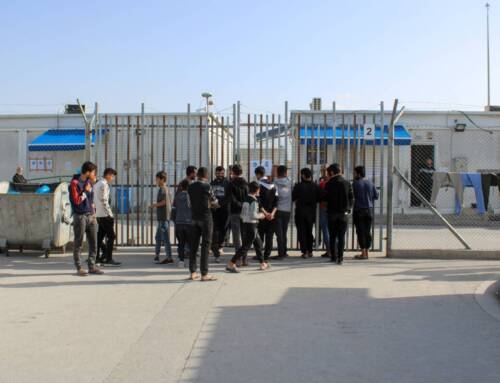‘We’ve already died a thousand times,’ says one of last Khan Sheikhoun residents to flee wave of bombing
Khan Sheikhoun is a town of concrete. Poured-cement homes stacked beside one another, cinder-block sheds, shops and cafes.To be indoors during a pro-government airstrike or bombing is to risk finding yourself trapped under layers of toppled concrete, beneath the rubble of what were once walls and roofs.
12 March 2019
Syria Civil Defense rescuers respond to a bombing in Khan Sheikhoun on Sunday night. Photo courtesy of the Syria Civil Defense in Idlib Province.
Khan Sheikhoun is a town of concrete. Poured-cement homes stacked beside one another, cinder-block sheds, shops and cafes.
To be indoors during a pro-government airstrike or bombing is to risk finding yourself trapped under layers of toppled concrete, beneath the rubble of what were once walls and roofs.
In one video posted late Sunday night by the Syria Civil Defense—the group of first responders often known as the White Helmets—rescue workers lift the wounded from concrete homes engulfed by darkness. The dust-covered body of one resident emerges from the rubble as volunteers dig through for survivors. He isn’t among those who have lived through the night’s bombing.
“We’ve already died a thousand times,” Um Omar, a Khan Sheikhoun resident, says of life under the bombs in her hometown before she fled north last week.
The town, in rebel-held Idlib province’s southern reaches, lies on the edge of a so-called “buffer zone” brokered in September last year between international powers intent on halting a widely anticipated assault on the area by the Syrian government and its allies.
The agreement seemed to be working, at least to a degree.
However, last month, pro-government forces ramped up shelling and airstrikes across rebel-held areas of northern Hama province as well as southern Idlib province, where Khan Sheikhoun sits amid farmland and countryside.
For Um Omar and her seven children, that meant joining the thousands of people from rural Idlib who have been displaced by the most recent wave of bombing.
It meant reaching a displacement camp, but finding no available shelter. And it meant taking what precious few belongings she could along with her, while her husband stayed behind to look after the rest.
“Thank God, we are now staying in a house with good people who took us in,” the 42-year-old tells Syria Direct’s Mohammad Abdulssattar Ibrahim.
“It’s shelter.”
Q: When were you displaced? And how did you leave Khan Sheikhoun?
I left [Khan Sheikhoun] on March 5. The Civil Defense used their vehicles to transport people to Atma, because that’s where the camps are.
My husband stayed behind because our homes would otherwise be vulnerable to dishonest people taking advantage of this situation to plunder houses.
We don’t communicate every day because the internet isn’t always working. But whenever I hear about a bombing on Khan Sheikhoun, my heart stops. I keep calling him until he answers. If he doesn’t answer the phone right away, I start having morbid thoughts. I get very scared.
When he answers, I feel as if I’ve been born again.
We were displaced [so late in the bombing] because of the bombardment that was happening and because we’re a poor family. We don’t have any supplies.
We went to Atma camp [along the Syrian-Turkish border], but we don’t know anybody there and didn’t find anywhere to stay after looking around for three hours in a Civil Defense vehicle. We lost hope of finding shelter.
Aftermath of a reported airstrike in Khan Sheikhoun on February 19. Photo by Anas al-Dyab/AFP.
By coincidence, one of the people there saw the situation my children were in, so they took us to a home in Sarmada where we are living alongside the [residents].
So we encountered one of the good families who took us into the house that they own after the hardship of a long journey and rain and bad weather above us. Thank God, we’re now living in a house belonging to these good people, after being deserted by all of the organizations.
We spend the entire day [in this house] talking about when God will release us from this bombing, and when we’ll return to our home. That’s all we talk about.
My children are always complaining that they miss our house, the neighborhood, their school. They ask me about when we’ll go home. They want the bombing to end so that we can return to our hometown.
Q: Before you were displaced, what was the situation like in Khan Sheikhoun?
Before we left Khan Sheikhoun, we’d already died a thousand times every day.
There is fear—especially when the shells fall around your house. And the shrapnel. Everyone is exhausted by it. We didn’t have anywhere to hide except for our house, all while seeing the injured and dead from among our own neighbors and the residents of the town.
We’ve gotten used to these things. But lately there has been even more bombing. I’d be inside the house when the bombardment would start, and I’d get the kids away from the windows and sit in the corner so that the shrapnel wouldn’t hit us.
Q: Did you leave Khan Sheikhoun just as a family, or was there a mass displacement from the city when you left?
At the time we left Khan Sheikhoun, we were among the last people remaining there, with more than one family and the Civil Defense. Thank God, we are now staying in a house with good people who took us in. It’s shelter.
We still haven’t received any aid or food assistance. We hope that the bombing will stop so that we can return to our hometown. Yes, our homes have faced damage but it is better than displacement and living at the mercy of the organizations, some of whom don’t have any mercy in their hearts.
God willing, this tragedy will end and we’ll return home soon. Every day, I think about returning.

